A happy and healthy bird is one that gets to enjoy a wide variety of fruits, vegetables, seeds and greens. Parrots, especially, love trying delicious new fresh foods and quickly grow bored from bland and repetitive diets. Unfortunately not all foods that humans enjoy are safe for birds to consume, so we’ve put together this helpful list of foods to avoid.
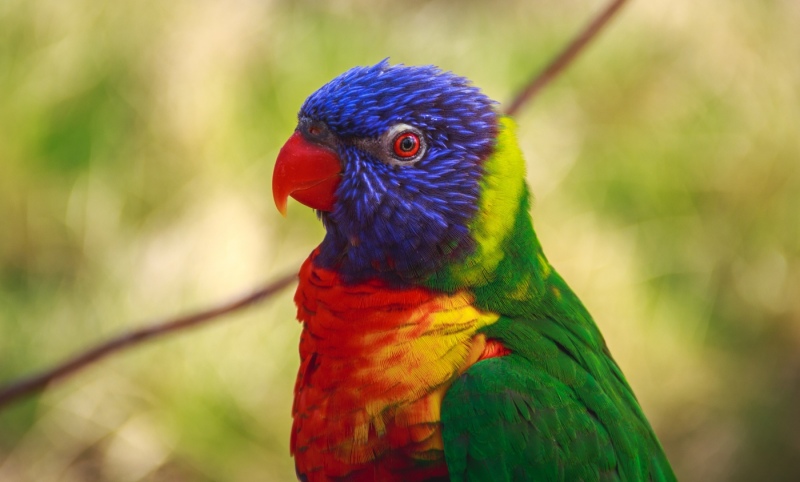
There’s lots of lists floating around the internet of foods that you should’t feed to your birds. The purpose of this list is to include some items that you won’t usually find on those lists, explaining why you should feed them and offering nutritious alternatives.
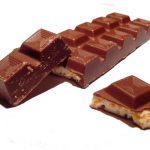
Chocolate
Chocolate is so addictive because it contains a stimulant called theobromine. Even if your bird only eats a small amount of chocolate, it can suffer symptoms resembling a drug overdose. These include heart attacks, depression, regurgitation, seizures, liver damage, and death.
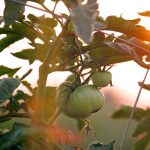
Tomato Leaves
The stem and leaves of tomato plants should not be fed, as they can cause digestive issues such as diarrea and vomiting. The fruit, however, is a beloved and nutritious treat for parrots.
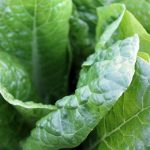
Spinach
You might be surprised to see spinach on this list. Spinach is certainly packed with nutrients and enjoyed by birds, however the high content of oxalic acid can cause health issues if fed too frequently. Oxalic acid prevents the body from being able to absorb calcium, which increases the risk of egg binding or injury. Silverbeet, endive, kale and bok choy are much better choices.

Alcohol
Alcohol isn’t particularly healthy for humans. It should therefore come as little surprise that giving alcohol to birds is a big no-no. Even minuscule quantities can cause rapid organ deterioration and death.
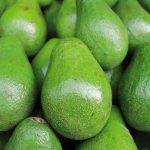
Avocado
Avocado is a extremely dangerous to birds due to the pit, which leaches a toxin called persin into the fruit and skin. Consumption of small quantities of avocado can lead to lethargy, breathing and digestive issues, and sudden death. Studies have found that smaller parrots will usually die within 48 hours of consuming avocado.
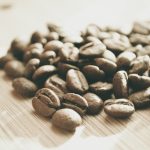
Caffeine
Coffee is among the greatest things in the world. From the very first sip in the morning, it makes us feel awake and alert by raising our heart rate and and tricking our brain into releasing chemicals that cause hyperactivity. Coffee has the exact same effect in birds, but because of their small size the effects are much more powerful. Even a small amount of caffeine, from soda, cakes or coffee; can cause birds to experience seizures and heart attacks.
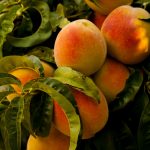
Fruit Seeds & Stones
The pit and seeds of many fruits contain trace amounts of cyanide which can be lethal to birds. Peaches, apricots and cherries need to have their stone removed before feeding, while apples, pears and other similar fruits should be sliced into pieces so the seeds can be removed. Once the seeds have been removed, all of the mentioned fruits are immensely enjoyed by birds.
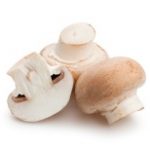
Mushrooms
Not just mushrooms! Essentially all fungi should be avoided, as they can cause a variety of different digestive problems in birds. Some species of mushroom are toxic and will cause a near-immediate death, while others will kill more slowly through liver failure or infection.
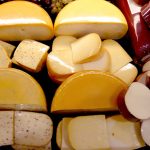
Dairy
Milk, cheese and other dairy-based products are not properly digested by birds and can cause a variety of health issues. Furthermore, dairy products tend to spoil quickly when not refrigerated which make them a dangerous vector for bacterial or fungal infections.
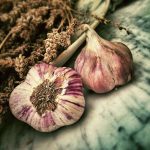
Onions, Garlic and Chives
Almost all herbs are unhealthy for birds. Generally speaking, they won’t cause any serious issues if consumed in tiny quantities, but feeding them frequently and intentionally can lead to a number of different digestive health issues. It’s best to avoid herbs altogether.
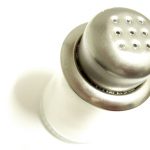
Salt
Foods containing large amounts of salt (or sodium) can cause dehydration and digestive problems, with repeated ingestion leading to liver failure. The trace amounts of salt in natural fruits and vegetables are completely safe, but be wary of any human food that was manufactured or processed. Popcorn is an extremely unhealthy food that is sadly fed to birds by many unaware owners.
Thanks for reading! Please be aware that this list is not comprehensive, so you should always research the health effects of any new food you intend to introduce into your birds’ diets.
You have a wonderful and helpful article on your website. Thank you for sharing. I used to have a collection of small soft billed finches and decided to concentrate mainly the Lady Gouldian Finches. In regards to salt, I usually provide my birds with a spool of rabbit salt and they seemed to love it. I wasn’t aware of the danger but I know that only few of them will lick the spool when they feel like they need to just like other animals. I will definitely would like to get some insight from the community. Thanks and hope to see comments from other breeders or hobbyist.
Can I put ferns in with my finches please